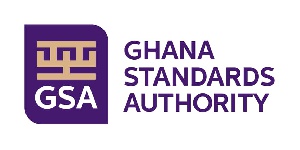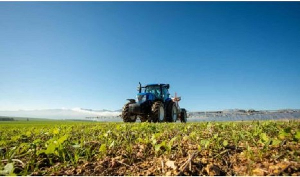The Ghana Standard Authority (GSA) is encouraging the use of ‘Aflasafe’ – an all-natural agro-product by local farmers to help drastically reduce aflatoxins in food crops.
‘Aflasafe’, developed by the International Institute of Tropical Agriculture (IITA) and its partners, cuts aflatoxin levels in maize and groundnuts by 80 per cent to 100 per cent – down to safe levels.
Aflatoxin is a poison produced by the fungus aspergillus flavus, which resides in the soil and infects crops in the field.
It contaminates about 65 per cent of maize and groundnuts.
Mr. Peter Martey Agbeko, GSA Head of Public Relations, speaking during a call on the Management of the Ghana News Agency (GNA), in Accra, to solicit support for public sensitization campaign on aflatoxins, said the Aflasafe contained non-toxic strains of aspergillus flavus that could neutralize the toxin-producing ones when applied in the field.
He added that a single application could progressively overwhelm and displace the aflatoxins, creating a safer environment for crops.
When applied properly and combined with good agronomic practices, Aflasafe would effectively control aflatoxins during crop development, harvesting and storage.
He labelled it as a purely biological pesticide, which was safe and ensured significant lower aflatoxin contamination in food and feed and enhanced income.
Mr. Agbeko said the National Aflatoxin Sensitization and Management (NASAM) team recognised the media as a strategic partner in the fight against the debilitating effects of aflatoxin.
He noted that aflatoxin could contaminate the entire food value chain, and that “continuous eating aflatoxin-contaminated foods and feed decreases productivity in humans and animals, and sometimes cause death”.
Agro-products including; cereals, legumes and fruits, fish and eggs, contaminated with aflatoxins compromised food security, health and trade in many developing countries including Ghana.
It could cause liver cancer, suppression of the immune system and retard growth and development in children among other health problems.
Mr Agbeko said the GSA with funding from the Alliance for Green Revolution in Africa (AGRA) was currently undertaking a National Aflatoxin Sensitisation Management Project, with partners including; the Council for Scientific and Industrial Research (CSIR) and the Ministry of Food and Agriculture.
This involved a pipeline approach that tackled the problem from the crop, storage to marketing, and underscored the critical role the media played in risk communication and public education.
He invited the GNA to get on board to intensify public education on the need to reject food and products contaminated with aflatoxin, and to encourage farmers to observe good agricultural practices.
Mr. Albert Kofi Owusu, GNA General Manager, said the media had maintained its drive of informing and educating the citizenry on health
and developmental issues as a true partner of development.
He said the Agency’s health reporters over the years had contributed to public education on aflatoxins, through their sustained reportage, and were ready to deepen the partnership with other stakeholders to ensure the sustainability of the campaign.
General News of Wednesday, 4 March 2020
Source: GNA













